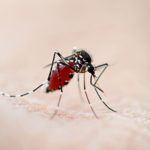Addressing Body Odor

What is body odor?
Strictly speaking, body odor is the scent – which may be pleasant, neutral, unpleasant or even impossible for a human nose to detect – given off by a human being. It is genetically determined and specific to an individual (this is how bloodhounds track humans). More often, however, the term is used to refer to the unpleasant scent that can develop when perspiration (which is virtually odorless) comes in contact with bacteria on the skin. Excessive sweating (hyperhidrosis) is a medical condition that can account for embarrassing and persistent body odor.
What are the symptoms?
Apart from the scent itself, the principal symptom of body odor is sweating.
What are the causes of body odor?
The body has two kinds of sweat glands: eccrine and apocrine. Eccrine glands open onto the skin’s surface, while apocrine glands are found in areas where hair grows, including the scalp, armpits and groin. Sweat from eccrine glands is mostly water and salt, but apocrine glands secrete a fatty sweat. Body odor arises when bacteria on the surface of the skin begin breaking down sweat from apocrine glands.
Although the amount you sweat can be hereditary, it also can be influenced by other factors. Beverages containing caffeine or alcohol can promote sweating, as can spicy foods. In addition, certain drugs can cause excessive sweating. These include aspirin, acetaminophen, excess doses of thyroxine, a thyroid hormone, and some medications used to treat mental disorders.
What is the conventional treatment?
When excessive sweating and the resulting body odor is due to severe hyperhidrosis, the nerves that serve the sweat glands can be blocked with botox injections. Several injections may be needed for optimal results. While this painful treatment stops sweating, it won’t prevent body odor and isn’t permanent – you’ll need more injections in four to eight months.
Certain drugs, called anticholinergics, can help reduce sweating by blocking the actions of acetylcholine, a chemical messenger helps to stimulate sweat glands. This usually yields results in about two weeks but can also cause dry mouth, constipation, blurry vision, urinary retention, loss of taste, dizziness and confusion. When excessive sweating is limited to the armpits, surgery to remove the sweat glands may be recommended. This can lead to “compensatory” sweating elsewhere on the body.
What natural treatments for body odor does Dr. Weil recommend?
Since the bacterial breakdown of sweat is what causes most body odor, try these measures to reduce body odor naturally:
- Because stimulants, including coffee and tea, contribute to body odor by increasing the activity of apocrine sweat glands, try eliminating these beverages and any others containing caffeine.
- Splash rubbing alcohol in the armpits to reduce bacteria on the skin.
- Look for deodorants in health-food stores that contain extracts of green tea, which is a safe, natural antibacterial.
Aluminum in deodorant products can be irritating or harmful. Avoid “natural crystals,” which may contain aluminum – even if they say they don’t.












